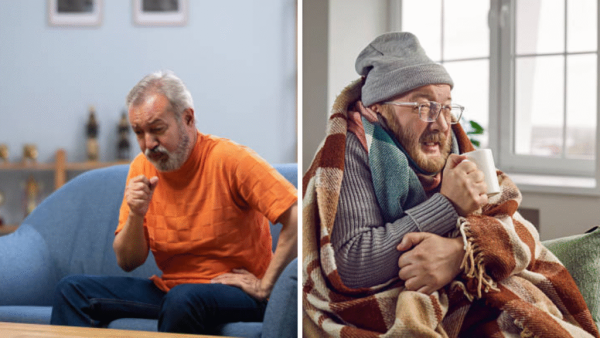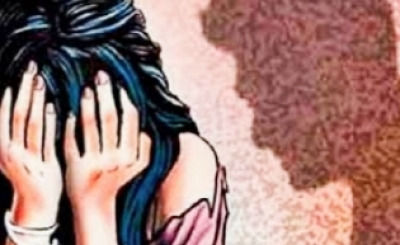
- World Pneumonia Day
- What are the symptoms in the elderly?
- Pneumonia Symptoms, Remedies and Prevention
Pneumonia is a serious infection of the lungs that can affect people of any age. But it is dangerous for elderly people. As the body’s immunity weakens with increasing age, the risk of lung infection increases. The reasons for this, initially symptoms It is necessary to know. Timely and proper treatment can reduce this risk. Dr. Vinod Chavan, Consultant, Chest Physician and Pulmonologist, Kokilaben Dhirubhai Ambani Hospital, Navi Mumbai has given more information about this.
World Pneumonia Day: ‘These’ people are at the highest risk of pneumonia, know the early symptoms
Why are older people at higher risk of pneumonia?
There can be many reasons for this, we will learn more about it from this article
- Having a weakened immune system – As a person ages, the immune system weakens and the body’s ability to fight against pathogens and viruses decreases.
- Long-standing illness – Diabetes, COPD, heart and blood vessel disorders as well as kidney diseases further weaken an already weakened immune system. Lung function slows down
- Cough Reflex Decreasing and limiting physical activity can be dangerous to health
- The natural reflex action of coughing when food or liquid enters the respiratory tract is slowed or reduced in the elderly. As a result, inhaled substances are not expelled and the risk to the individual increases. Lack of physical activity, prolonged bed rest or difficulty swallowing increases the risk of ‘aspiration pneumonia’. This is a condition in which food and fluid pass into a person’s trachea or lungs. If the cough reflex is not activated at the right time, these substances can get trapped in the lungs and cause infection
- Having to be admitted to hospital- Elderly people who have to stay in a hospital or long-term care facility are at a higher risk of developing lung infections. In such places they may come into contact with more virulent and drug-resistant bacteria. These bacteria cause lung infections.
What symptoms are seen in the elderly?
- Persistent cough: This cough may be phlegmatic or dry. It can last for a long time
- Fever and chills or sweats: Some elderly patients do not have a fever, but may still experience these symptoms
- Shortness of breath or rapid breathing: Shortness of breath or rapid breathing
- Chest pain or discomfort: Feeling some pain or discomfort in the chest while breathing or coughing
- Fatigue and weakness or loss of appetite: Feeling tired, weak, or have a loss of appetite
- Confusion or disorientation: This symptom is often the first sign of pneumonia in elderly patients.
Because these symptoms are vague and mimic those of other illnesses, pneumonia can be diagnosed late in the elderly. This can lead to serious complications such as sepsis and respiratory failure.
World Pneumonia Day : One Breath…Many Dangers! Pollution, cold and weak immune system are the three secret enemies of pneumonia
Diagnosis and treatment
A physical exam, chest X-ray, and some blood tests can help determine the type of infection. In some cases, the diagnosis can also be made by examining the phlegm or sputum. Treatment depends on the cause and severity of the illness
- for pneumonia Antibiotics are sufficient, and if treatment is delayed or not properly treated in the first stage, any type of pneumonia is more likely to develop serious complications.
- In viral pneumonia, supportive care is generally advised, such as plenty of rest, maintaining adequate body fluids, and, if necessary, supplemental oxygen if blood oxygen levels are low. In certain cases, doctors may also recommend intravenous (IV) antiviral medications
If the symptoms are very severe, or if the patient has a chronic illness, and the blood oxygen level decreases, such patients require hospitalization.
What to do to prevent
- It is very important for the elderly to take careful steps to avoid pneumonia in order to stay healthy
- Vaccination is a great measure of prevention. Annual flu vaccination and cloud pneumonia vaccine can significantly prevent the risk
- Lifestyle should be healthy. Balanced, proper, nutritious diet, adequate water, fluid intake, daily physical exercise, adequate sleep are essential.
- It is very good not to smoke at all, not to be around someone who smokes, to avoid dirty, polluted air. Smoking and exposure to smoke damage the lungs, increasing the risk of contracting pneumonia
- If you have cough, fever, difficulty breathing, you should immediately see a doctor in a hospital with a multidisciplinary approach, because there is a high possibility that it will turn into pneumonia.
Pneumonia is a serious threat to the health of the elderly, but with the right information and prompt action, it can be prevented and, if it does occur, easily treated. The following are very important to protect the respiratory health of the elderly: early recognition of symptoms, careful attention to pre-existing diseases and strict adherence to the vaccination schedule.
-
Mizoram's Traffic Management Earns National Award at UMI Conference 2025

-
Man makes rape attempt on specially-abled Bengaluru woman, arrested

-
'He Was Very Excited': Nagarjuna Recalls Ranbir Kapoor's Obsession With Shooting Animal

-
Passengers, please note: Several trains on this route have been cancelled. Check the list before your journey.

-
Dharmendra Released From Hospital; To Receive Further Treatment At Home
